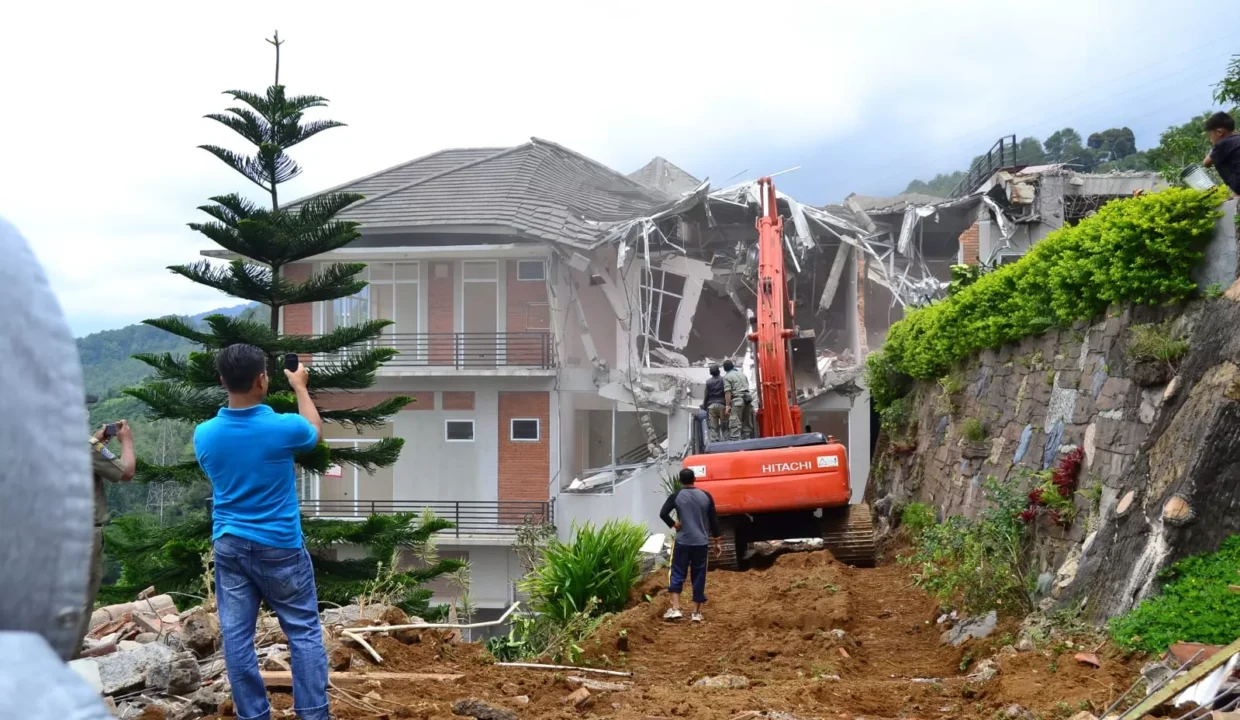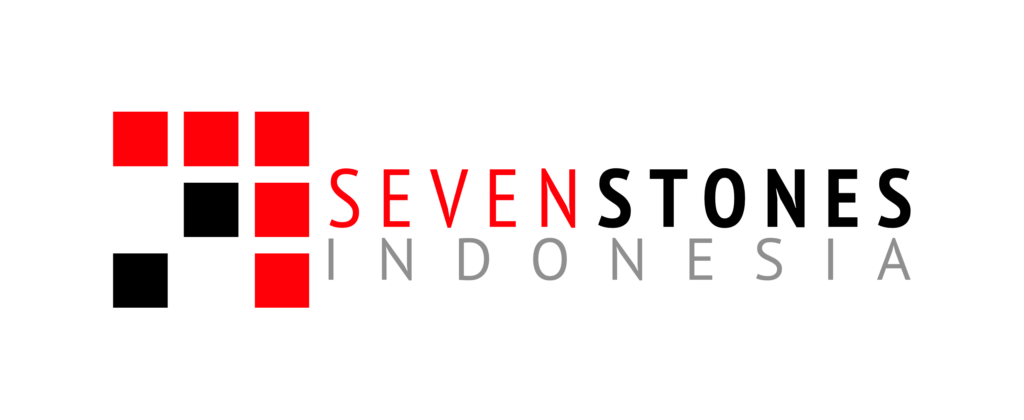
Illegal property developments in Bogor have triggered a strict response from the government. The Ministry of Environment (KLH) and the Ministry of Agrarian Affairs and Spatial Planning (ATR/BPN) are enforcing environmental regulations against property owners who violate land use laws. This case underscores the importance of environmental law enforcement in Indonesia to protect natural ecosystems and prevent disasters.
Government’s Crackdown on Illegal Villas
Authorities have taken decisive action against properties built in restricted forest areas. A joint operation led to the demolition of four villas in the Puncak region, with more under review. These villas were constructed in a Limited Production Forest Area, violating the regional spatial plan.
Rahma Julianti, Director of Regional Spatial Planning Development, emphasized the government’s commitment to enforcing regulations. “Together with the Ministry of Forestry, we remain committed to ensuring that land use activities comply with the Spatial Planning Regulations, particularly in the Puncak area,” she stated, as reported by asajabar.com.
Environmental Law Enforcement in Indonesia Strengthens Regulations
The government is adopting a multi-door approach to tackle environmental violations. This method includes administrative sanctions, civil lawsuits, and criminal charges for severe infractions. Companies operating in the upstream area of the Ciliwung River Basin have already faced penalties for expanding operations beyond approved limits.
One major violator, PT Perkebunan Nusantara (PTPN), increased its tourism zone from 16 hectares to 39 hectares. It also introduced more agrotourism activities without proper environmental monitoring. “If there is evidence of serious violations, we will recommend the demolition of facilities and the restoration of affected land,” said Rizal Irawan, KLH’s Deputy for Law Enforcement.
Consequences for Developers and Property Owners
Several companies, including PT Jaswita Lestari Jaya and PT Eigerindo Multi Produk Industri, received administrative sanctions. They must dismantle unauthorized structures and restore damaged areas. Meanwhile, companies like PT Sentul City Tbk and Summarecon Bogor face legal action for environmental degradation.
Investigations revealed significant land cover changes in affected areas. Dodi Kurniawan, KLH’s Director of Environmental Dispute Resolution, highlighted a striking case: “One of the most striking cases is the change in land cover at Hibics Fantasy Puncak, managed by PT Jaswita Lestari Jaya. Originally a tea plantation, this land has now been converted into permanent structures that reduce water absorption capacity and increase runoff during rainfall.” He stated, as reported by kompas.com.
Future of Sustainable Property Development in Indonesia
These crackdowns send a clear message to developers. Sustainable property development must align with environmental laws to avoid penalties. Authorities aim to promote responsible land use and eco-friendly tourism to balance economic growth with conservation efforts.
As enforcement expands, companies must conduct environmental impact assessments and follow legal guidelines. Developers investing in tourism and real estate must integrate sustainability into their projects to ensure long-term viability.
Lessons from Bogor: Compliance to Prevent Environmental Disasters
The crackdown on illegal villas in Bogor highlights the importance of strict environmental law enforcement in Indonesia. Protecting natural resources requires accountability and adherence to regulations. While this issue is specific to Bogor, it serves as a reminder that all property developers must comply with environmental laws to prevent future disasters and ensure sustainable development.
Source: kompas.com, asajabar.com
Images; Foto: Hendi Novian/Radar Bogor
